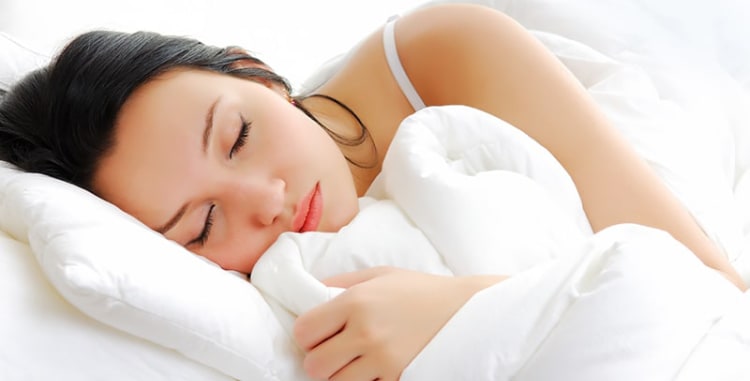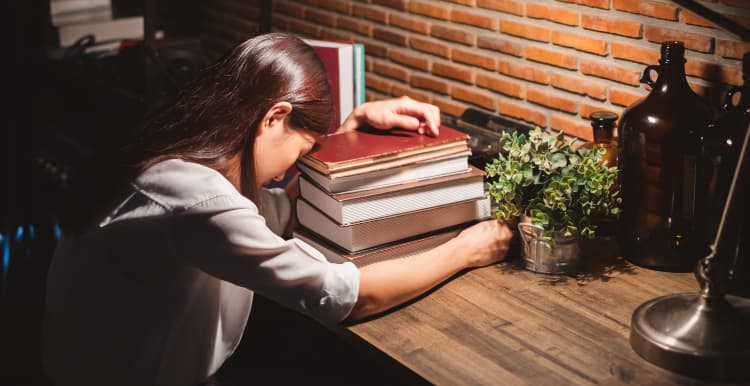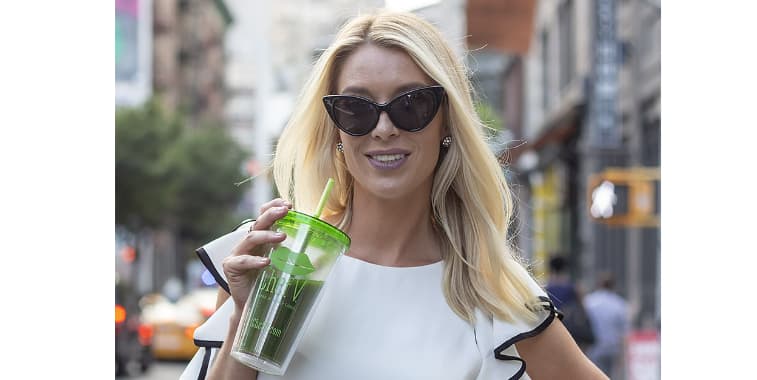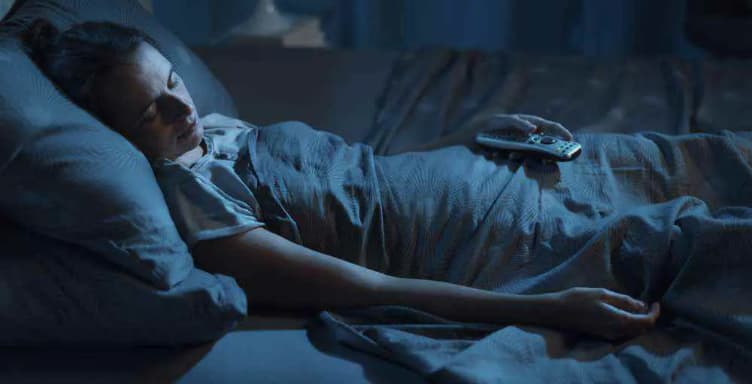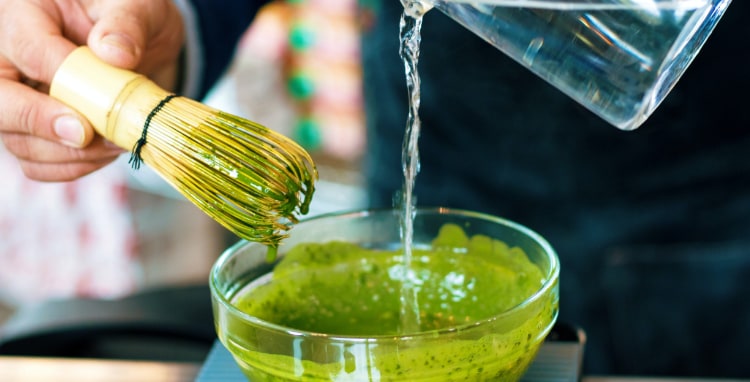Several Chef V customers recently posted how having a Green Drink first thing in the morning has improved their energy throughout the day and even their sleep quality. So I decided to look into the connection between how green leafy veggies affect sleep quality. I also provide a handful of tips on how to get restful zzzzz’s.
I’ve said it once and I’ll say it a thousand more times…
The easiest, healthiest thing you can do to start your day is to have 8-16 ounces of Organic Green Drink. It’s not a shameless sales pitch. Ask any of the thousands of Chef V customers who follow this daily piece of advice and they’ll tell you that it just sets you up for a great rest of the day. Your energy will be rock-steady. You’ll be slightly buzzing with a high vibration. Not jittery buzzing, but just an optimistic, pep-in-your-step great feeling.
But there’s a catch…
If you’re having a Green Drink in the morning, will the good vibes last well into the night? In other words, can consuming green leafy veggies actually support sleep quality? Yes – clinical research apparently proves the point.
In 2023, ChefV.com products were the focus of an independent clinical trial by Citrus Labs. The 38 participants who completed a 21 DAY DETOX and then continued on a GREEN DRINK plan for 7 days saw vast improvements in all areas of their life. This includes a 34% reduction in inflammation and an average weight loss of nearly 8 pounds, and a 44% improvement in sleep quality.
Research on Green Veggies & Sleep Quality
According to a 2021 study in the Swiss journal, Antioxidants, green leaf lettuce (one of the 7 certified organic veggies in Green Drink) was shown to bind to GABA receptors. I’ll break it down in plain English.
So GABA is a neurotransmitter, which are chemical messengers in the brain. Having great communication is key to almost everything in life and it turns out that for sleep and overall health, it’s crucial.
And in order to have rejuvenating sleep and feel relaxed, your GABA neurotransmitters have to be able to get the message that they need to be activated. This is because GABA is like your brain’s natural valium—without the addictive side effects.
So what’s in lettuce that activates GABA and leads to better sleep quality? Well, the researchers believe that the antioxidant called quercetin plays a big role. You may have heard of quercetin. I know people who take quercetin supplements. I guess it can’t hurt to take a quercetin supplement but I always advocate getting the real thing from food.
V’s 3 Most Important Sleep Tips (Besides Green Drink)
In addition to eating (and drinking) lots of organic green, leafy veggies and other produce, here are 3 things that help me get better sleep:
- Meditate
With so many meditation apps to choose from, many of them free, you don’t have to be a Buddhist monk in order to achieve a more restful, relaxed state. My favorite app is the Calm app.
I listen to the daily Calm every morning for 10 mins and usually every night before I go to bed.
It also helps me if I wake up too early – I can do the daily mediation and usually get back to sleep.
Try to listen to a sleep or meditation app for 15 minutes before you try to fall asleep for the night. If you wake up in the middle of the night and can’t go back to sleep, follow along to the app for another 10-15 minutes.
- Feast at lunch, eat a light dinner
A lot of people are so busy during the day that they barely have time to eat lunch and when they do, it’s usually something not substantial enough and not well-balanced. Turkey sandwiches come to mind. Instead, try carving out time and eating a large lunch with a healthy grain like quinoa, a big portion of roasted/steamed veggies and a lean piece of protein like fish or tempeh. Then for dinner, have soup and salad.
- Get Adequate Exercise
I notice that on days when I’m not as active as I’d like to be (hasn’t been happening that much lately because of my new pickleball obsession), I don’t sleep as well.
Make sure you move your body enough during the day. I know it’s tough for many people who work remotely on their laptop all day. But try to take a few mini-movement breaks during the day.
And don’t forget to start each day with Organic Green Drink! Here’s to getting plenty of restful zzzzz’s.
Leafy Greens in Green Drink Block Blue Light
I also came across a study in the curiously named journal, Cureus, which said that leafy greens contain micronutrients that can positively influence sleep:
- Tryptophan
- Potassium
- Magnesium
- Fiber
- Iron
- Calcium
- Vitamin C
- Lutein
- Zeaxanthin
- Choline
- Beta carotene
So let’s talk about some of these micronutrients that are in Organic Green Drink. For starters, the researchers of this study said that fiber “has been shown to be associated with deeper and more restorative sleep.”
So in case you’re wondering what the heck lutein and zeaxanthin are, they are the most important antioxidants for vision and eye health. And the cool thing about these two micronutrients that are also found in Green Drink is that they are natural filters of high-energy blue light. That helps support sleep because blue light, which is emitted from smartphones and other electronic devices, suppress your body’s production of the sleep hormone, melatonin.
And that’s the reason why you should always put your phone in airplane mode when you go to bed and turn off all other electronics in your room a good hour before you want to fall asleep. If you have a TV in your room, get rid of it; move it into another room and stop watching well before bedtime.
Look, I could go on and on with these research studies. If you want to check more out, here ya go.) Now I’m not saying if you struggle with really difficult insomnia that having a little Green Drink in the morning is the cure, or if you eat a salad for dinner you’ll sleep like a baby. But there is plenty of evidence that associates green leafy veggie consumption with better sleep quality.
